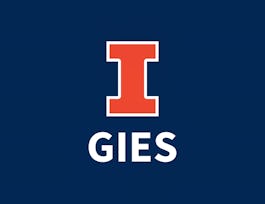Successfully marketing brands today requires a well-balanced blend of art and science. This course introduces students to the science of web analytics while casting a keen eye toward the artful use of numbers found in the digital space. The goal is to provide the foundation needed to apply data analytics to real-world challenges marketers confront daily. Digital Analytics for Marketing Professionals: Marketing Analytics in Theory is the first in a two-part series of complementary courses and focuses on the background information and frameworks analysts need to be successful in today's digital business world.


Digital Marketing Analytics in Theory
This course is part of Digital Marketing Specialization
Taught in English
Some content may not be translated

Instructor: Kevin Hartman
131,750 already enrolled
Included with 
Course
(4,735 reviews)
97%
What you'll learn
Gain an understanding of the motivations behind data collection and analysis methods used by marketing professionals
Understand frameworks and approaches to measuring consumers’ digital actions
Learn to evaluate and choose appropriate web analytics tools and techniques
Earn familiarity with the unique measurement opportunities and challenges presented by New Media
Skills you'll gain
Details to know

Add to your LinkedIn profile
23 quizzes
Course
(4,735 reviews)
97%
See how employees at top companies are mastering in-demand skills

Build your subject-matter expertise
- Learn new concepts from industry experts
- Gain a foundational understanding of a subject or tool
- Develop job-relevant skills with hands-on projects
- Earn a shareable career certificate


Earn a career certificate
Add this credential to your LinkedIn profile, resume, or CV
Share it on social media and in your performance review

There are 4 modules in this course
In the orientation, you will become familiar with the course, your instructor, your classmates, and the learning environment. The orientation also helps you obtain the technical skills required for the course. Module 1 looks at modern analysts and analytics in the context of its distinct historical epochs, each one containing major inflection points and laying a foundation for future advancements in the ART + SCIENCE that is modern data analytics.
What's included
8 videos8 readings6 quizzes1 peer review
In Module 2, we explore each digital channel in-depth, including a discussion of key metrics and measurements, how consumers interact with brands on each platform, and ways of organizing consumer data that enable actionable insights.
What's included
6 videos2 readings6 quizzes1 peer review
Module 3 focuses on understanding digital data creation, how brands use that data to measure digital marketing effectiveness, and the tools and skill sets analysts need to work effectively with data. While the contents are lightly technical, this section veers into the colloquial as I dive into multitouch attribution models, media mix models, incrementality studies, and other ways analysts conduct marketing measurement today.
What's included
6 videos2 readings6 quizzes1 peer review
Module 4 provides a useful framework for evaluating data analysis and visualization (“dataviz”) tools and explains the critical importance of digital marketing maturity to analysts and the companies for which they work.
What's included
5 videos4 readings5 quizzes1 peer review1 plugin
Instructor

Recommended if you're interested in Business Essentials

University of Illinois at Urbana-Champaign

University of Illinois at Urbana-Champaign

University of Illinois at Urbana-Champaign

University of Illinois at Urbana-Champaign
Get a head start on your degree
This course is part of the following degree programs offered by University of Illinois at Urbana-Champaign. If you are admitted and enroll, your coursework can count toward your degree learning and your progress can transfer with you.
Why people choose Coursera for their career




Learner reviews
Showing 3 of 4735
4,735 reviews
- 5 stars
67.02%
- 4 stars
24.16%
- 3 stars
6.37%
- 2 stars
1.43%
- 1 star
0.99%
New to Business Essentials? Start here.

Open new doors with Coursera Plus
Unlimited access to 7,000+ world-class courses, hands-on projects, and job-ready certificate programs - all included in your subscription
Advance your career with an online degree
Earn a degree from world-class universities - 100% online
Join over 3,400 global companies that choose Coursera for Business
Upskill your employees to excel in the digital economy
Frequently asked questions
Access to lectures and assignments depends on your type of enrollment. If you take a course in audit mode, you will be able to see most course materials for free. To access graded assignments and to earn a Certificate, you will need to purchase the Certificate experience, during or after your audit. If you don't see the audit option:
The course may not offer an audit option. You can try a Free Trial instead, or apply for Financial Aid.
The course may offer 'Full Course, No Certificate' instead. This option lets you see all course materials, submit required assessments, and get a final grade. This also means that you will not be able to purchase a Certificate experience.
When you enroll in the course, you get access to all of the courses in the Specialization, and you earn a certificate when you complete the work. Your electronic Certificate will be added to your Accomplishments page - from there, you can print your Certificate or add it to your LinkedIn profile. If you only want to read and view the course content, you can audit the course for free.
If you subscribed, you get a 7-day free trial during which you can cancel at no penalty. After that, we don’t give refunds, but you can cancel your subscription at any time. See our full refund policy.

